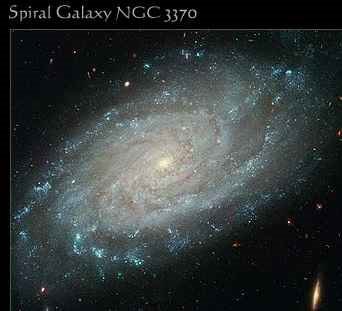Islam in a Science Magazine?
 I was looking through my mail today when I came across this magazine (see cover picture). At first glance look like a magazine my parents subscribe to -- an Islamic magazine -- except for one small difference: the magazine was Discover - a science magazine!
I was looking through my mail today when I came across this magazine (see cover picture). At first glance look like a magazine my parents subscribe to -- an Islamic magazine -- except for one small difference: the magazine was Discover - a science magazine!I remember an issue of Time magazine with an Islamic topic as the main story, but this is the first time I'd ever see an Islamic story on the cover of a science magazine, especially one that comes out and says "Science and Islam" on the cover of Discover Magazine. (oddly, the issue is not dated, so i am assuming it is some special report - it arrived June 5, 2007.) I was curious to find out what was in the article so I flip to page 36 and started reading carefully.
The article's author traveled to several Arab countries to interview scientists. Some of the topics covered in the article included reasons why the Islamic world is currently behind in terms of science, reasons why it will stay that way, also reasons why there is hope for a better future for science in the world.
The article starts out talking about how in some places, such as Egypt, scientists whose views do not fall in line with the way the Quran is currently interpreted are hushed or not allowed to teach or teach conduct scientific research. It also talks about how some supposed “scientists” try manipulating science in order to match the Quran. The article spends time talking about Jordan. As a country where scientific inquiry is being sandwiched between a lack of natural resources, such as water, and a flood of Iraqi refugees, adding to the already strained resources of the Jordanian government (not to say anything about the state of the Jordanian government). Such seems to be the case in many Islamic countries. Between the government trying to provide its services and lending its own pockets, basic scientific research and education just can't compete for funding. Compound in all of this, is an ongoing brain drain that will probably continue for the foreseeable future.
The article doesn't spiral little bit of hope in that it describes the struggles of several scientists in Islamic countries that are trying to make the best of a grim situation. The major bright spot in the entire article was a $10 million facility that would act as a knowledge of center collaboration for many Middle Eastern countries (yes, even Israel).
The article brings out many realities that Arabs and Muslims don't like to talk about. Muslims are always nostalgic about the golden age of Islam. But those times are way over. Muslims need to accept that fact and learn to accept good science, whether or not the ideas are popular.
Although funding will probably always be an issue in countries like Jordan and Egypt, it pains me to see much wealthier nations such as Dubai and Abu Dhabi squandered their wealth on frivolous projects, when they could be putting that money to much better use.



2 Comments:
This comment has been removed by the author.
Very interesting post. They dismissed however the other side of the story and only focused on the negative. Many Muslim scholars & institutions maintain that the Qur'an relates to the discipline of science in two ways:
- Since the Qur'an, according to Muslim belief, is the Word of the All-Knowing, All-Powerful God, it cannot contain any scientific errors (i.e. information that directly contradicts established scientific fact, as opposed to theories, hypotheses, and so forth). It follows from this that whatever of the Qur'an's content is deemed to be literally interpretable must remain consistent with scientific fact, even if the Book makes no explicit claims to providing scientific wisdom.
- The Qur'an may allude to natural phenomena to pique the curiosity and intellect of the human being, to point the mind to the general design and order of the universe, and to foster gratitude, humility, and appreciation toward the Creator.
Post a Comment
<< Home